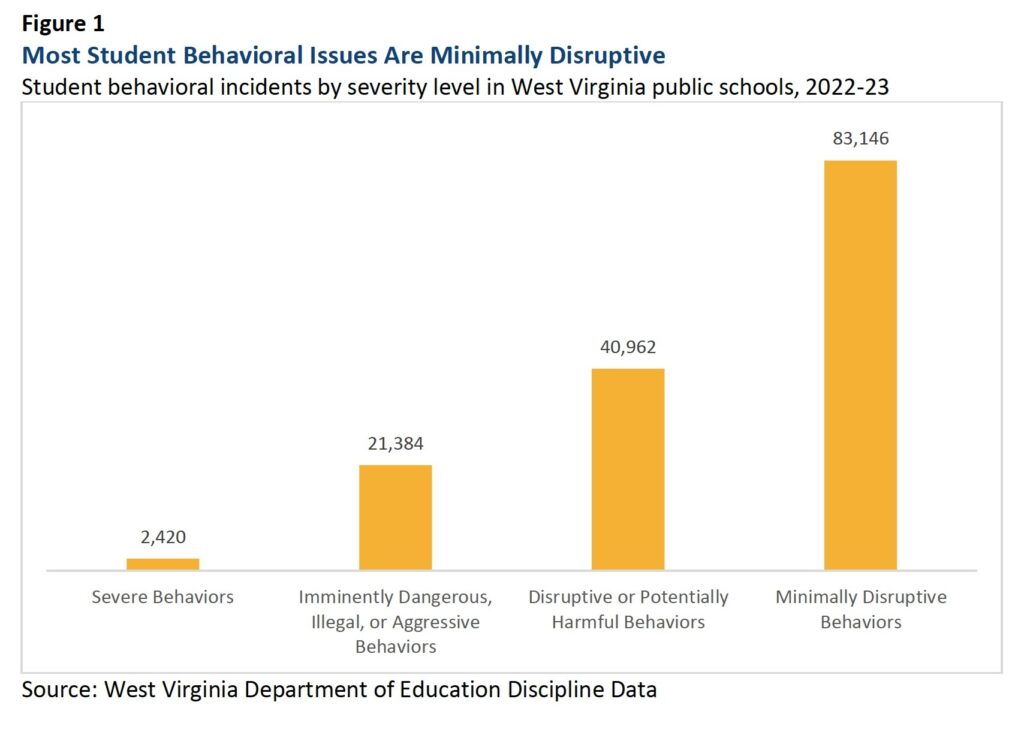West Virginia lawmakers have considered sweeping, punitive school discipline measures over the last two years in response to an increase in disruptive student behaviors. This issue is not unique to West Virginia—87 percent of public schools nationwide report that the pandemic has negatively impacted student socioemotional development. While teachers and schools certainly need more support to address student behavioral issues, policymakers must recognize the harms in failing to address the root causes of these behavioral issues as well as the disproportionate rate at which punishment policies fall on students of color.
Read the full fact sheet.
Earlier this year, state lawmakers considered two pieces of legislation, Senate Bill 614 and House Bill 4776, that sought to expand a 2023 law, House Bill 2890, to elementary grades, though neither were enacted.
Senate Bill 614 would have expanded the 2023 law to allow kindergarten through sixth grade teachers to remove children who exhibit behavior that is violent, threatening, or intimidating to staff or peers; creates an unsafe learning environment; or impedes on other students’ ability to learn from the classroom. Similarly to HB 2890, the legislation failed to define any of those behaviors, raising concerns about potential overuse and misuse. Under the proposed legislation, an elementary student would be removed from the classroom and suspended for one to three days while alternative accommodations are made after a single behavioral incident. If a student’s parents could not pick them up by the end of the day, law enforcement could be called. Allowing suspension as punishment for one incident and involving law enforcement increases the potential for biased decision-making or rushed judgment, likely violates federal protections for students with disabilities, and exacerbates the state’s child welfare crisis while reinforcing the well-documented school to prison pipeline.
Current data in West Virginia and around the country show that students of color, low-income students, students receiving special education services, male students, and LGBTQ students are disproportionately impacted by existing school discipline policies. These differences in how discipline is deployed cannot be reasonably explained by “worse” behavior among these students. The language of proposed legislation is also cause for concern by labeling students and their behavior as “guilty,” “disruptive,” “threatening,” and “intimidating.”
Exclusionary discipline aims to correct behavioral issues among students but does not address the root causes of these issues. These may include individual factors like physical and mental health and environmental factors such as a student’s school, family, and community. Larger structural factors like education policies and legislation can also influence student behavior. Research shows that punitive disciplinary approaches negatively impact academic performance and increase the chances of excluded students repeating a grade, dropping out of school, or interacting with law enforcement and the criminal legal system. Negative interactions with law enforcement can contribute to psychological strain and emotional distress among youth such as depression, anxiety, or post-traumatic stress disorder. These interactions can also result in physical harm for youth.

Read the full fact sheet.